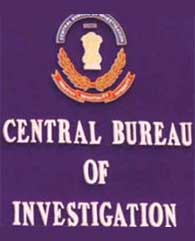 The Centre on Wednesday told the Supreme Court that it is bringing significant legal changes to free the Central Bureau of Investigation from extraneous influences and usher in a new system of appointing its director.
The Centre on Wednesday told the Supreme Court that it is bringing significant legal changes to free the Central Bureau of Investigation from extraneous influences and usher in a new system of appointing its director.
The director will be given protection on the lines of the provisions in the Central Vigilance Commission’s law, under which the incumbent can be sacked only by the President on a reference by the CVC, that he is guilty of misbehaviour or incapacity.
Asked to put in place a law for ensuring independence of and functional autonomy of the CBI, the Centre on Wednesday filed a 41-page affidavit in the apex court, detailing the various steps it was planning to take to insulate the agency from political and other influences. It placed on record the recommendations of the Group of Ministers and Cabinet decisions on the issue.
The government said the Delhi Special Police Establishment Act, under whose provisions the CBI operates, would be amended to provide for a Committee under the aegis of the Prime Minister, including the Chief Justice of India or a Supreme Court Judge and the Leader of Opposition in Lok Sabha, which will choose the director.
At present, the director is appointed by the Centre from a panel of officers recommended by a committee comprising the Central Vigilance Commissioner (Chairperson), Vigilance
Commissioners, Secretary in-charge of Home Ministry and Secretary (Co-ordination and Public Grievances) Cabinet Secretariat.
The affidavit said that the CVC will have the power of superintendence and administration over the CBI for all cases to be probed under the Prevention of Corruption Act but such power would vest in the Centre for rest of the cases.
"While exercising the power of superintendence, the central government shall not exercise powers in such a manner so as to require the Delhi Special Police Establishment to investigate or dispose of any case in a particular manner," the government said and added that a Bill would be introduced in Parliament to ensure financial autonomy to the agency.
The affidavit was filed in compliance with the apex court's May 8 order -- asking the government as to whether it intended to put in place a law to ensure independence of CBI and its functional autonomy and insulate it from extraneous influences of any kind.
Dubbing the agency as a "caged parrot", the court had passed the order in the wake of a sensational disclosure made by CBI Director Ranjit Sinha -- that the agency shared its
investigation report on the coal scam with the then law minister Ashwani Kumar, top officials of the Prime Minister’s Office and the coal ministry.
In the affidavit, the government further said that the CBI would have the power to go ahead with the prosecution for its officials if the Centre does not grant sanction within three months.
The Centre also proposed to insert two new provisions in the existing law for establishing a panel -- to be known as the Accountability Commission -- which will entertain and inquire into "allegations of misbehaviour, incapacity, impropriety or irregularities" of CBI officials.
"The Commission shall consist of three whole time members to be appointed by the President from amongst the retired judges of the Supreme Court or the high courts and the senior-most judge amongst them shall be designated as the Chairperson. The Central Vigilance Commissioner shall be ex-officio member of the Commission," the Centre said.
The Centre further said that the CBI director "shall be removed from his office only by the order of the President on the ground of proved misbehaviour or incapacity after the Central Vigilance Commissioner, on a reference made to him by the President, has, on inquiry, reported that the Director is guilty of the charged misbehaviour or incapacity."
"Director CBI shall, recommend officers for appointment to the posts of the level of Superintendent of Police and above and also recommends extension or curtailment of the tenure of such officers," the affidavit said.









 © 2025
© 2025